A self-study, self-paced course where you can learn how to paint in watercolor by watching video lessons and doing assignments
$297 USD
ENROLL NOWA self-study, self-paced course where you can learn how to paint in watercolor by watching video lessons and doing assignments
$297 USD
ENROLL NOWOne-to-one, unlimited and custom-tailored to your skills and needs Personal Tutoring by the Watercolor Academy teachers
$997 USD
ENROLL NOWVideo lesson by Vladimir London
In this video lesson, you will discover how to use the Golden Proportions to compose beautiful artworks.
The golden ratio is the formula at the foundation of art. It is present all over the universe, from spiraling galaxies to pinecones and seashells.
The golden ratio, or golden proportion, was first mentioned by ancient Greek mathematicians more than 2,300 years ago. It was rediscovered during the Renaissance and has been used by artists, architects, sculptors, and designers ever since.
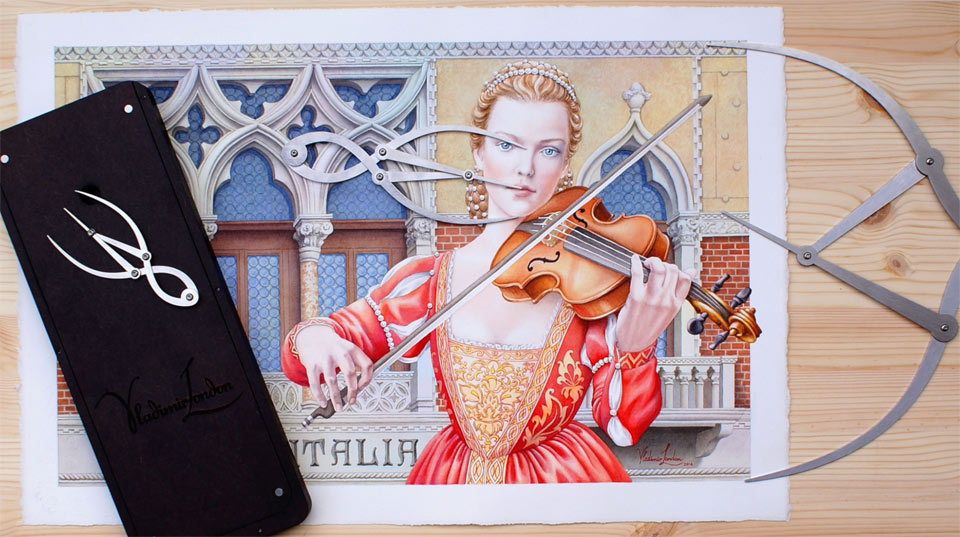
Without going deep into history and mathematics, I'll briefly mention what Golden Proportion is the ratio of a bigger part to a smaller one that is equal to the ratio of these two parts combined to the bigger part.
Do not worry if this explanation is a bit wordy; all you need to know is that the bigger measurement divided by the smaller one is equal to 1.618034… with digits after the decimal point going to infinity. To make compositions with watercolors, we can approximate it to 1.6.
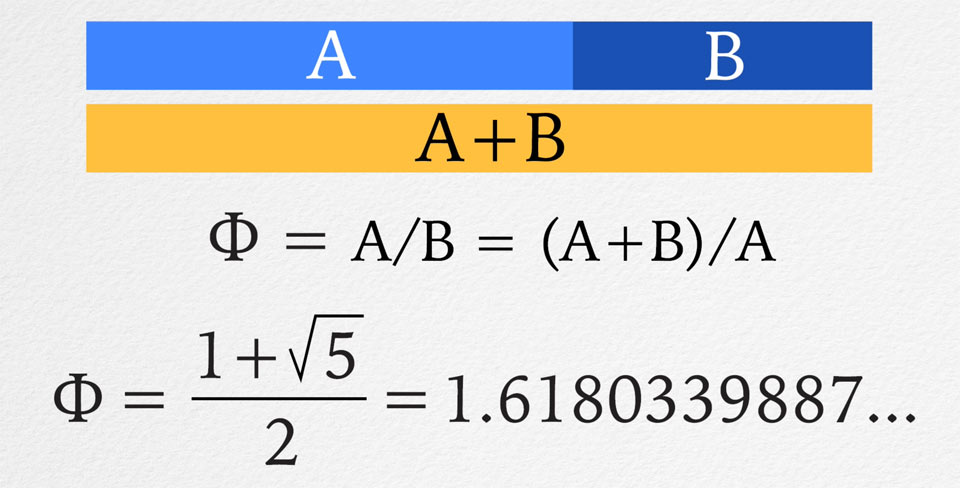
What is so magical about this ratio and how can we use it in our watercolor paintings?
To answer this question, we need to examine the Golden Proportions geometry.
A rectangle with one side that is 1.6 times longer than the other is called the Golden Rectangle. An interesting thing about this shape is that adding a square to its bigger side once again forms another Golden Rectangle.
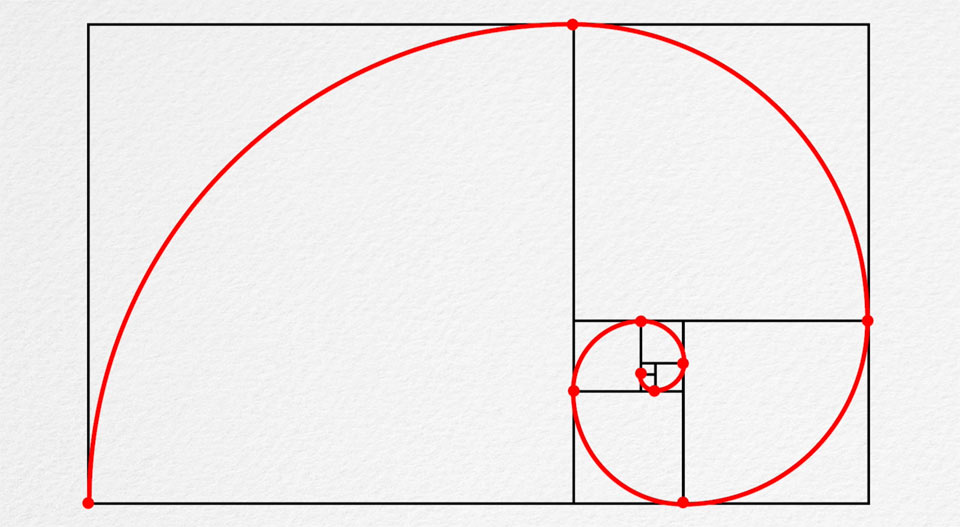
The same is true when cutting off squares from a Golden Rectangle. Such addition or deduction can be repeated indefinitely.
Cutting off or adding golden rectangle squares gives points that are located on a logarifmic spiral. By connecting these points, we will get the Golden Spiral.
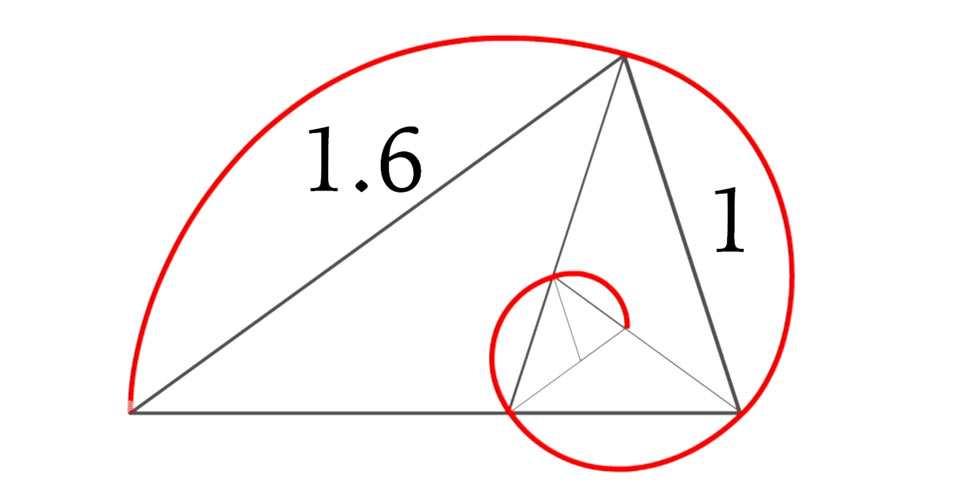
Such spirals can be found in galaxies and many objects of nature including plants and animals.
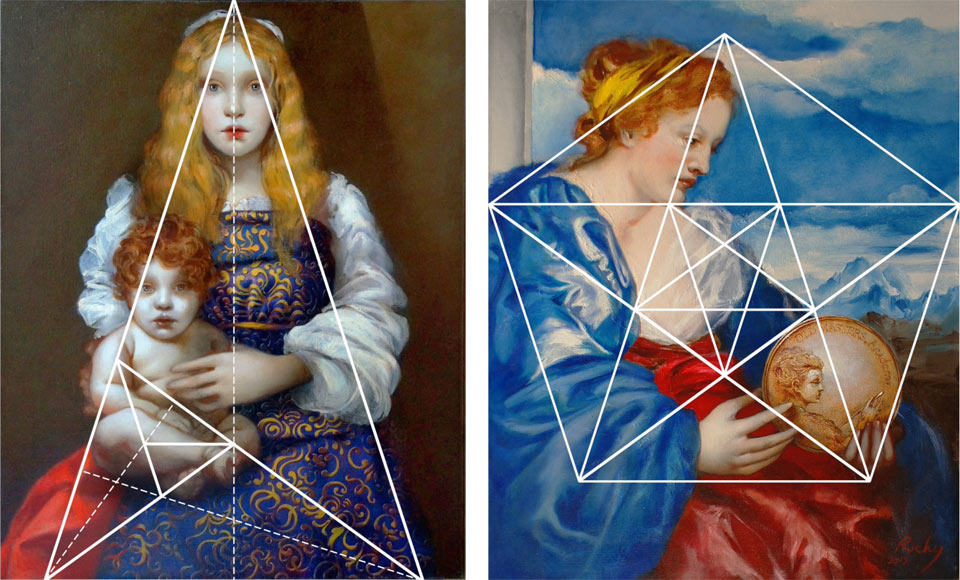
The Golden Triangle has two equal sides and the third side 1.6 times longer or shorter.
Several golden triangles can be arranged together to shape a Pentagon. The diagonal of such pentagon is 1.6 times bigger than its side. Let's come back to the question why this geometry is important for art and how you can use it in watercolor painting?
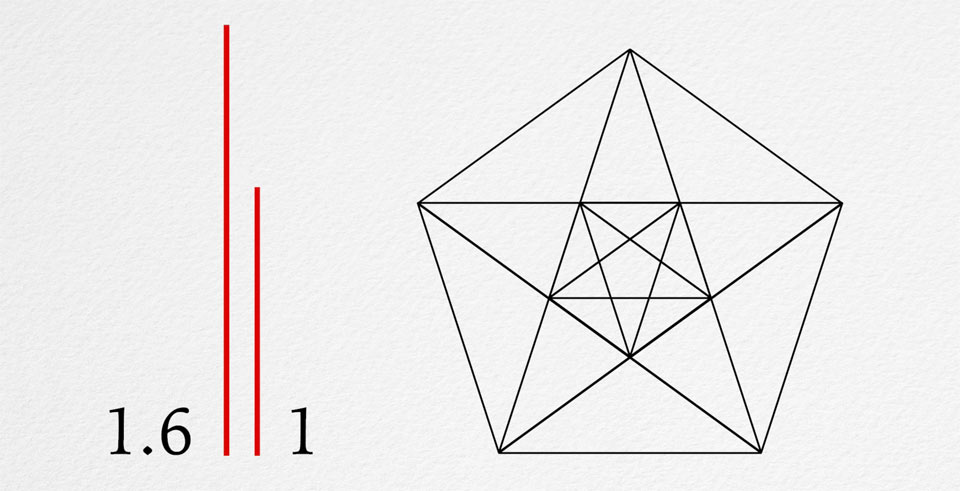
To begin, you may choose to paint on a sheet of paper that is proportionate to the golden rectangle. Of course, this is optional; you are welcome to use any paper you wish. Regardless of the paper shape you use, you can still apply the golden proportions for the composition.
The sheet of paper can be divided into three parts, according to the Golden Proportion. Two lines divide the rectangle vertically and horizontally into three parts. These areas have ratios of three-eighths and two-eights of the rectangle side. Each line divides the rectangle according to the Golden Proportion.
Now, you may want to position important objects in your composition so they coincide with some of these lines' intersections. For example, if you paint a portrait of a model, you may want to arrange it so their eye line coincides with the upper horizontal line. When painting a standing figure, you can align the body with one of the vertical lines.
If you paint a landscape, the horizon will fit well on one of the horizontal lines. Should you use the upper line, more emphasis is placed on the ground. If you want to make the composition airy, placing the horizon on the lower line does the job. The intersections of these lines attract the viewer's attention. Consider placing the focal points of your design close to these dots.
You can also arrange your composition so that it matches the golden spiral. Try superimposing a spiral on your design so that you can decide if any objects should follow this line, touch it, or sit in a focal point of that curve. A similar approach can be used with golden triangles or a golden pentagon.
You can also use the main diagonal of the golden rectangle and the perpendicular line that starts in the corner. This divides the rectangle into three unequal parts. Three objects with sizes proportionate to those parts can be placed in corresponding areas to form a well-balanced composition.
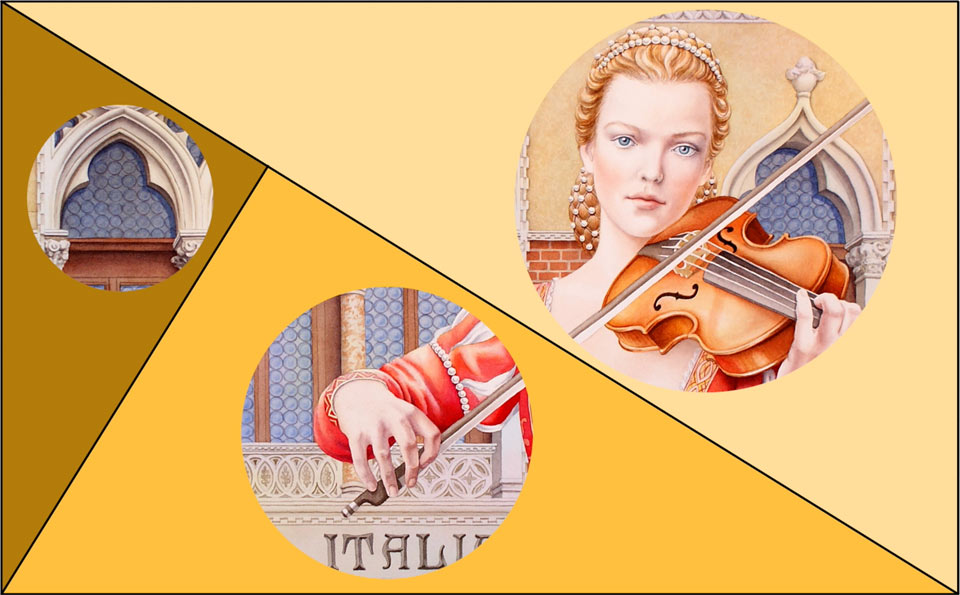
There are endless ways to use the golden ratio in your art.
I often receive questions about how to begin a composition according to the golden ratio. The answer is: you don't.
Here's the thing—you are an artist, not a geometer. So, the best way for you to start is by freehand drawing the layout you desire. Arrange your drawing by eye to meet your standards. Then, you can compare it to the golden ratio if you have doubts or want to fine-tune your drawing. You might be surprised to find out that you incorporate the golden ratio by intuition. This is what matters most in original and creative fine art—your own method of making an artwork, not strict adherence to calculated mathematical formulas.
A self-study, self-paced course where you can learn how to paint in watercolor by watching video lessons and doing assignments
One-time payment - Lifetime membership
$297 USD
One-to-one, unlimited and custom-tailored to your skills and needs Personal Tutoring by the Watercolor Academy teachers
One-time payment - Lifetime membership
$997 USD